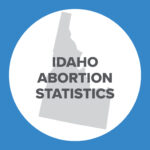Study on Reproductive Loss Shows Need for Advanced Grief Screening in Mothers

Life Perspectives Answers the Call and Starts Development of Grief Screening Tool
Reproductive loss impacts many women across the United States and around the world every day and can cause years of unresolved grief. The Mayo Clinic estimates that 10-20% of “known” pregnancies end in miscarriage.[i] In 2014, the latest year published, 24,000 stillbirths were reported in the United States by the Centers for Disease Control and Prevention (CDC).[ii] Additionally, the CDC had 619,591 abortions reported to them in 2018.[iii] Many women have taken to the internet to unravel years of pent-up grief and silent suffering as a sort of therapeutic expression of their loss and a grasp at closure. Life Perspectives, a research and education institute dedicated to spreading awareness about reproductive loss, recently published a peer-reviewed study in Frontiers in Psychology analyzing the numerous anonymous accounts posted in two forums, MiscarriageHurts.com and AbortionChangesYou.com, detailing the emotional pain caused by reproductive loss. The study also brings to light the need for improved screening tools for health care practitioners regarding reproductive loss. Michaelene Fredenburg, President and CEO of Life Perspectives, said… “there is a critical need for healthcare providers to be equipped with a grief screening tool for reproductive loss… Just a few questions, asked kindly and at the right time by medical professionals, may save a patient years of pain and suffering.”[iv] Life Perspectives has stepped in to fill this need and has announced the development of a grief screening tool expected to be available for use by mid-2023.
Life Perspectives’ new study, Uncovering Prolonged Grief Reactions Subsequent to a Reproductive Loss: Implications for the Primary Care Provider, examines grief reactions experienced after reproductive loss and the time elapsed during which those grief reactions are experienced. The study points to an earlier 2018 study[v] showing that women who experience perinatal loss can experience grief symptoms for up to 10 years after their loss, while mainstream health care guidelines recommend different types of screening, depending on the type of loss and time elapsed, between three to 12 months after a reproductive loss.[vi]
The materials and methods portion of the study states that the “intent of [the] study was not to generalize about reactions related to an early pregnancy loss, rather to determine the extent of some prolonged grief reactions that can occur, elucidate cited biopsychosocial outcomes, and uncover potential gaps in grief care provision.”[vii] To begin shaping a framework and uncovering potential gaps in the grief screening process two main questions were asked in the study:
- “What is the length of time that women disclose regarding the date a miscarriage or abortion occurred and when they sought a venue to share their stories on a reproductive bereavement website blog post?”[viii]
- “What, if any, maladaptive responses to reproductive grief were disclosed in the narratives commensurable with the time elapsed?”[ix]
To answer these questions, the researchers analyzed 164 posts from female posters on two internet forums dedicated to healing from reproductive loss, MiscarriageHurts.com and AbortionChangesYou.com. There were 138 posts from AbortionChangesYou.com (launched in 2008), while 26 posts came from MiscarriageHurts.com (launched in 2017).[x] The findings include that 57.9% of those who had abortions reported the time that had elapsed since their abortions, while 73.1% of those who had miscarriages reported time elapsed. 38% of the posters reported that their reproductive loss occurred less that a year prior to their post, while 21% reported their losses occurred between 1-4 years prior. 7% reported their losses 5-10 years prior, 6% reported 11-15 years prior, and 6% reported their losses more than 15 years prior to their posts.[xi]
The study highlights just a few of the heartbreaking stories of prolonged grief that women have suffered throughout the years after a reproductive loss. One woman recalled, “Eleven years later I am still having issues. Not all the time but coming up to the anniversary [of the miscarriage]. April first is not funny at all. That’s the day that changed my life forever.” Another woman recounted, “I am 63 years old. I had an abortion when I was 15 years old… All these years I have never spoken to anyone about this… And over the years I put it in the back of my mind, but it always seems to be there.”[xii] Maladaptive partner and parental relationships, adverse occupational adjustment, substance misuse, and mental health issues are all potential effects of reproductive loss. Life Perspectives’ study shares some of the stories that show the intense and urgent need for thorough grief screening after reproductive loss. After having an abortion, one woman shared, “I cried for days, weeks, years. I suffered with depression. I was suicidal. If this was such a quick fix why did it hurt so much inside?” Another woman wrote, “I regretted my decision about 2 weeks later and sunk into extreme anxiety and panic attacks. It was hell. I was depressed. It has been a year.” Another shared, “I became very depressed, anorexic, getting down to 100 pounds for a 5’6 fully developed young adult.”
These are just a few of the stories that highlight the need for proper and thorough grief screening after reproductive loss. Life Perspectives will be filling a much-needed gap in the medical community by providing a wider-catching reproductive loss screening tool. It is the hope that this tool will save women years of feeling isolated, alone, and ashamed in their grief, and will allow them to find the support and healing they need to live healthy and fulfilling lives.
[i] The Mayo Clinic, “Miscarriage, Overview,” https://www.mayoclinic.org/diseases-conditions/pregnancy-loss-miscarriage/symptoms-causes/syc-20354298 (Accessed July 12, 2021).
[ii] The Centers for Disease Control and Prevention, “Stillbirth, Data and Statistics,” https://www.cdc.gov/ncbddd/stillbirth/data.html (Accessed July 13, 2021).
[iii] The Centers for Disease Control, “Abortion Surveillance – United States, 2018,” https://www.cdc.gov/mmwr/volumes/69/ss/ss6907a1.htm, (Accessed July 13, 2021).
[iv] Life Perspectives, “Life Perspectives’ New Study Exposes Years of Silent Suffering After Pregnancy Loss,” May 18 2021. https://www.lifeperspectives.com/life-perspectives-new-study-exposes-years-of-silent-suffering-after-pregnancy-loss/ (Accessed July 13, 2021).
[v] Kossigan Kokou-Kpolou, et al., “Persistent depressive and grief symptoms for up to 10 years following perinatal loss: Involvement of negative cognitions,” Science Direct, https://doi.org/10.1016/j.jad.2018.08.063, December 1, 2018, (Accessed July 13, 2021).
[vi] American College of Obstetricians, and Gynecologists’ Committee on Practice Bulletins—Gynecology (2018). ACOG practice bulletin, number 200: early pregnancy loss. Obstet. Gynecol. 132, e197–e207. doi: 10.1097/AOG.0000000000002899 (Accessed July 13, 2021).
[vii] Kathryn R. Grauerholz, et al., Uncovering Prolonged Grief Reactions Subsequent to a Reproductive Loss: Implications for the Primary Care Provider,” Frontiers in Psychology, https://doi.org/10.3389/fpsyg.2021.673050, May 12, 2021, (Accessed July 13, 2021).
[viii] Ibid.
[ix] Ibid.
[x] Ibid.
[xi] Ibid.
[xii] Ibid.






























